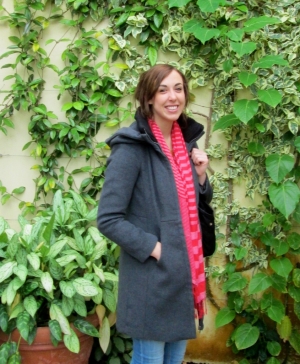Project tackles planning for low-income clients, students gain practical skills
By Karen Gross
Although he had been living with HIV for about 20 years and had survived a serious car accident that left him with some long-standing injuries, Dakota Marks had never given much serious thought to writing a will. Not until his close friend and longtime adviser Corena Debassige suggested he attend a workshop at 2-Spirited People of the 1st Nations, a non-profit social service organization which supports Aboriginal members of Toronto's LGBTQ community. Debassige is a client care coordinator at 2-Spirits and has handled palliative and respite care there for two decades.
"To be honest, I think if you don't have a will then it's time to write one," she says. "That's one of the major setbacks I have. When people pass away and there is no will or power of attorney, it's very difficult to manage their remains and follow their wishes."
Several years ago, Debassige discovered a probono legal program that offered a route to ease her burden and calm the anxieties of her ailing clients. The Wills Project, founded originally and exclusively to serve low-income people with HIV/AIDS, is now coordinated by Pro Bono Students Canada, a national non-profit born at U of T almost 20 years ago. Its reach has expanded beyond the AIDS umbrella, to serve low-income clients from a range of backgrounds. Debassige contacted PBSC and has been working with them ever since. "It's an informal partnership but it has worked wonders for people's peace of mind," she says, "as well as for me and the remaining families."
Currently, PBSC’s Toronto chapter dedicates some 12 law students to the program every year. They help draw up as many as two dozen wills, not just for clients of 2-Spirits, but also for people referred by Legal Aid Ontario and the 519 Church Street community centre. At 21 law schools across Canada, hundreds of PBSC volunteers work on the Wills Project and other probono programs, with the help of local lawyers who mentor them on their own time. Not only do these volunteers fill a critical void in the legal system, says PBSC's executive director Nikki Gershbain, LLB 2000, they add a layer of value to their legal education that could never be accessed via the classroom.
Katy O'Rourke says PBSC helped define her career path. "I can't imagine trying to seek out my own opportunities to volunteer and contribute," she says. "PBSC offers so many opportunities that students wouldn't be able to do otherwise."
many opportunities that students wouldn't be able to do otherwise."
"Law students are just the perfect group because they're learning, they want to learn even more, they're very compassionate as a rule and there are large numbers of them," Gershbain says. In fact, although probono work is not a mandatory piece of the law school curriculum in Canada, PBSC recruits some 1600 students every year, and keeps a waiting list of about 700. But the organization is seriously strapped for cash, and Gershbain is a tireless fundraiser. A consistent cash flow and more resources would bolster programs and opportunities, she argues, better serving an already robust dual purpose.
"If we create really engaging opportunities for students in all areas of the law, students will do it because they see value in it," she says. "I truly believe they can make a difference. There just aren't enough lawyers out there who are able to do the kind of probono work that needs to be done to fill the gap."
Katy O'Rourke
For Katy O'Rourke, JD 2013, PBSC was a source of inspiration, experience and income during law school. She volunteered in several of its programs and was employed by the organization as a program coordinator. She ran the Wills Project in her final year. Now an articling student at the union-side labour firm Ursel Phillips Fellows Hopkinson, O'Rourke says PBSC helped define her career path. "I can't imagine trying to seek out my own opportunities to volunteer and contribute," she says. "PBSC offers so many opportunities that students wouldn't be able to do otherwise."
It also fills a critical need for people like Dakota Marks, who didn’t have the means to pay a lawyer to write up his will, but who needed one even if he hadn't realized it. Adopted and raised by a loving Caucasian family in Montreal, Marks is a Split Lake Cree. He was born to a First Nations mother in Thompson, Manitoba. After reconnecting with her several years ago, he wanted to make sure both his families were looked after in the event of his death.
"It was very important to me to know there wouldn't be any funeral expenses for my parents," he says. Marks plans to leave some mementos for siblings, nieces and nephews. And his will ensures that after his cremation, his remains are divided between loved ones in Montreal and Winnipeg. It's given him a totally unexpected sense of relief.
"It's an awesome thing that people should have done right away, as soon as possible," Marks says. "I'm just happy I don't have to use mine yet."

 many opportunities that students wouldn't be able to do otherwise."
many opportunities that students wouldn't be able to do otherwise."